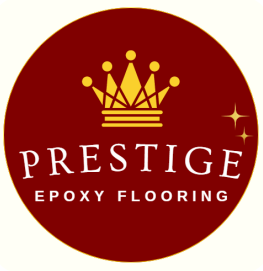When it comes to choosing the ideal flooring system for an industrial space, two options often stand out due to their durability, strength, and low-maintenance features: epoxy flooring and polished concrete. Both flooring systems have their unique advantages, making the decision-making process a critical one that requires careful consideration of your space’s specific needs and challenges. In this blog, we will compare epoxy flooring and polished concrete, discussing their respective features, benefits, and potential drawbacks, providing you with the insights needed to make an informed decision for your industrial space.
Epoxy flooring is a robust and versatile solution, boasting excellent durability and resistance to chemicals, impact, and abrasion. It consists of a combination of epoxy resin and hardeners, forming a seamless and highly resilient surface when applied over concrete substrates. This flooring option is popular for warehouses, garages, and other industrial spaces due to its functional benefits and customisable aesthetics.
Polished concrete, on the other hand, involves refining the concrete’s surface to achieve a smooth, glossy finish that exhibits a high degree of sheen. This is achieved through a series of grinding and polishing steps, using specialised diamond tooling, to create an extremely hard-wearing surface suitable for numerous industrial applications.
Both epoxy flooring and polished concrete have established themselves as reliable industrial flooring systems, but depending on your specific requirements, one may be better suited to your needs. In this blog, we will delve further into the differences between these two systems, focusing on aspects such as durability, maintenance, aesthetics, cost, and environmental considerations.
Durability and Resistance: A Comparison
When it comes to industrial flooring, durability and resistance to damage are of paramount importance. Both epoxy flooring and polished concrete offer excellent strength, but with a few distinctions:
- Chemical Resistance: Epoxy flooring excels in terms of resistance to chemicals, as its seamless surface forms a protective barrier against corrosive substances. Polished concrete, while somewhat resistant to chemical exposure, can be prone to staining and may require sealants to provide additional protection.
- Impact and Abrasion Resistance: Both epoxy and polished concrete flooring systems boast impressive impact and abrasion resistance. However, epoxy flooring can provide higher resistance to chipping, scratching, or surface damage, making it ideal for spaces with heavy machinery or where dropped items are a concern.
Maintenance and Cleaning: Which System Requires Less Work?
A low-maintenance flooring solution is essential for industrial spaces where efficiency and cleanliness are crucial. Let’s examine how epoxy flooring and polished concrete compare in terms of maintenance and cleaning:
- Cleaning Ease: The smooth, seamless surface of epoxy flooring makes cleaning a breeze, with no joints or crevices for dust and dirt to accumulate. Polished concrete, while easy to clean, may require regular re-polishing to maintain its glossy finish and is susceptible to stains or discolouration if not correctly sealed.
- Maintenance Requirements: Epoxy flooring systems tend to be low-maintenance, only requiring occasional re-coating to maintain their protective and aesthetic properties. Polished concrete, on the other hand, necessitates more frequent maintenance, including periodic regrinding and resealing to preserve its appearance and protective features.
Aesthetics and Customisation: Which System Offers More Flexibility?
From a visual standpoint, both epoxy and polished concrete flooring systems offer appealing aesthetics; however, when it comes to customisation, epoxy flooring systems have the edge:
- Colour Options: Epoxy flooring provides a vast array of colours to choose from, giving you the ability to create a unique, visually striking industrial space. Polished concrete can also be coloured through staining techniques, but the range of available colours may be more limited.
- Design Customisation: Epoxy flooring allows for intricate patterns, logos or floor markings to be incorporated into the surface, offering a wealth of design possibilities. Polished concrete, while offering some design flexibility, is generally less customisable than epoxy systems.
Installation and Cost: Balancing Your Budget
Installation costs and procedures are vital considerations when selecting an industrial flooring system. Let’s compare epoxy flooring and polished concrete in terms of installation and cost:
- Installation Time: Epoxy flooring systems tend to have a shorter installation time compared to polished concrete, which can result in quicker project completion times and reduced downtime for your operations. However, the area’s size and the complexity of the project can influence the actual installation duration for both systems.
- Cost Comparison: Evaluating cost is critical when choosing an industrial flooring system. Polished concrete generally has a lower initial installation cost compared to epoxy flooring; however, it may require more frequent maintenance that could add to overall costs in the long run. Epoxy flooring, while potentially more expensive upfront, boasts low maintenance requirements and longer-lasting performance.
Environmental Considerations: Which System Aligns with Sustainability?
Sustainability and environmental impact are crucial factors for many businesses as they evaluate flooring options:
- Emissions: Epoxy flooring systems release low levels of volatile organic compounds (VOCs) during installation, but newer, low-VOC epoxy formulations are available for those environmentally-conscious projects. Polished concrete has low emissions and is considered a more environmentally friendly option in this regard.
- Life cycle: Epoxy flooring may have a shorter lifespan compared to polished concrete, depending on the specific system and environment. However, epoxy systems that are well-maintained boast impressive durability that can serve your space for many years.
Conclusion
Both epoxy flooring and polished concrete have proven their worth as industrial flooring systems, offering durability, resistance, and low maintenance. Your decision on which system to choose should be based on several factors: the function and demands of your space, your aesthetic preferences, budgetary constraints, and environmental considerations.
Allow Prestige Epoxy Flooring, Melbourne’s premier flooring solution provider, to assist you in making the right decision for your industrial flooring needs. Consult with our team of experienced professionals and receive a free, no-obligation quote. We’re eager to discuss your specific requirements and recommend the best flooring solution for your space, ensuring long-lasting performance, functionality, and visual appeal. Invest in a high-quality flooring system tailored to your industrial space with Prestige Epoxy Flooring.

